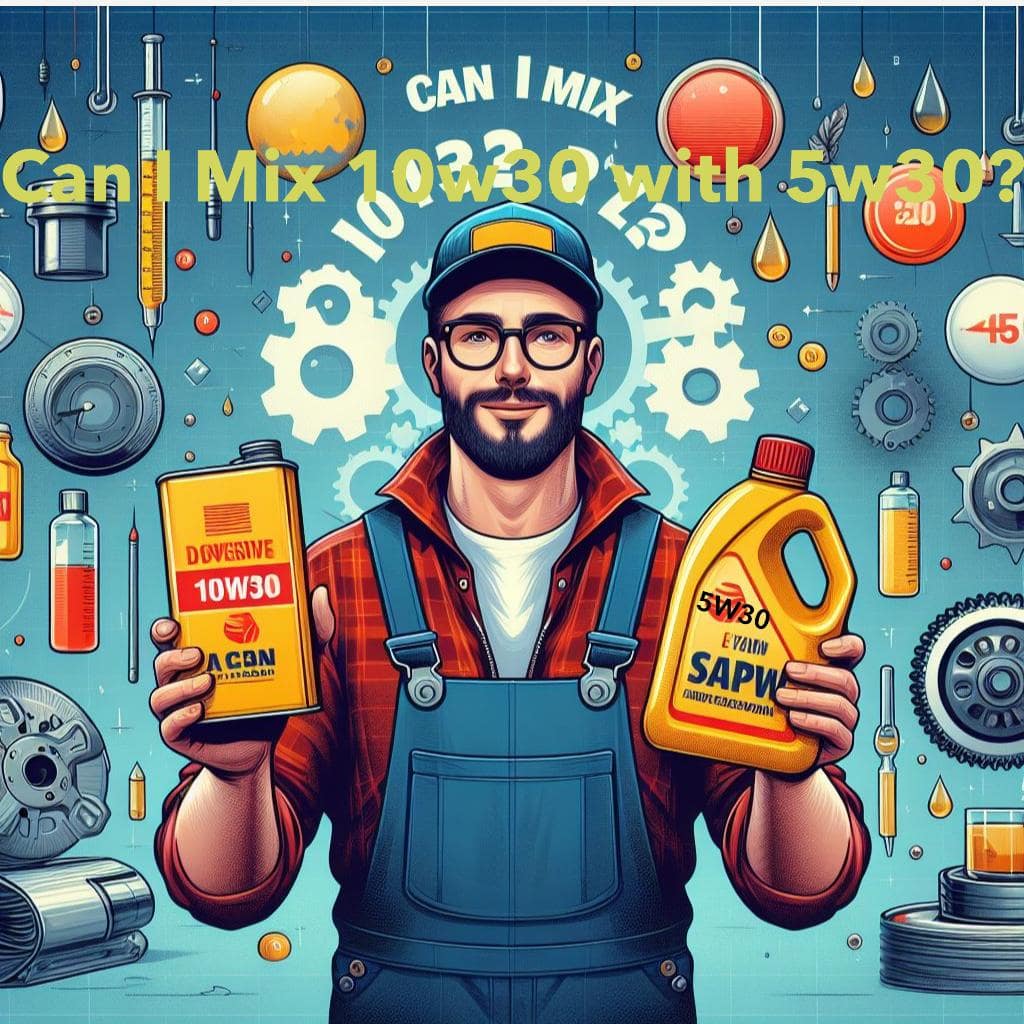Engine oil and coolant are two essential fluids in a vehicle that play critical roles in ensuring the smooth operation of the engine. However, when these two fluids mix, it can indicate a serious problem with the engine. Understanding the reasons behind engine oil and coolant mixing can help diagnose and address issues promptly.
1. Blown Head Gasket
One of the most common reasons for engine oil and coolant to mix is a blown head gasket. The head gasket is a crucial component that seals the cylinder head to the engine block. When the head gasket fails, it can allow oil and coolant to mix. This can result in a milky substance forming in either the oil or coolant reservoir.

Credit: www.dubizzle.com
2. Cracked Engine Block
If the engine block develops a crack, it can also cause engine oil and coolant to mix. A cracked engine block can allow oil and coolant to leak into each other’s passages, leading to contamination. This can be a serious issue that requires immediate attention to prevent further damage to the engine.
3. Worn Out Cylinder Head
A worn-out cylinder head can lead to oil and coolant mixing in the engine. Over time, the cylinder head can develop cracks or damage, allowing oil and coolant to seep into areas where they shouldn’t be. This can result in a loss of engine performance and potential overheating issues.
4. Faulty Oil Cooler
Another reason for engine oil and coolant mixing could be a faulty oil cooler. The oil cooler is responsible for regulating the temperature of the engine oil. If the oil cooler malfunctions or develops a leak, it can cause oil and coolant to mix, leading to issues with engine lubrication and cooling.

Credit: www.reddit.com
5. Improper Installation of Parts
In some cases, engine oil and coolant may mix due to the improper installation of certain engine components. If gaskets, seals, or other parts are not installed correctly, it can create pathways for oil and coolant to mix. Proper installation and maintenance are crucial to prevent such issues.
6. Overheating of the Engine
Continuous overheating of the engine can also contribute to engine oil and coolant mixing. When the engine overheats, it can cause damage to various components, including gaskets and seals. This damage can lead to leaks that allow oil and coolant to mix, signaling a more significant underlying problem.
7. Contaminated Coolant System
If the coolant system becomes contaminated with oil due to a leak or other issue, it can result in engine oil and coolant mixing. Contaminated coolant can affect the performance of the cooling system and lead to overheating. Regular maintenance and inspection of the coolant system are essential to prevent such problems.
8. Corrosion and Rust
Corrosion and rust within the engine can also cause engine oil and coolant to mix. Over time, corrosion can weaken the seals and gaskets in the engine, allowing oil and coolant to mix. Regularly flushing the coolant system and using high-quality coolant can help prevent corrosion-related issues.
9. Incorrect Oil or Coolant Type
Using the wrong type of oil or coolant in the engine can lead to mixing issues. Different engine oils and coolants have specific properties that are designed to work effectively in a particular engine. Using the incorrect type can result in compatibility issues that lead to oil and coolant mixing.
10. Inadequate Maintenance
Overall, inadequate maintenance of the engine and its components can contribute to engine oil and coolant mixing. Regularly scheduled maintenance, including oil changes, coolant system inspections, and engine checks, can help prevent issues that lead to oil and coolant contamination.
Conclusion
Engine oil and coolant mixing is a serious issue that can indicate underlying problems with the engine. Understanding the various reasons behind this mixing can help vehicle owners diagnose and address issues promptly to prevent further damage. Regular maintenance, timely repairs, and proper installation of parts are crucial in maintaining the health and performance of the engine.
By staying vigilant and addressing any signs of engine oil and coolant mixing promptly, vehicle owners can ensure the longevity and reliability of their engines.


